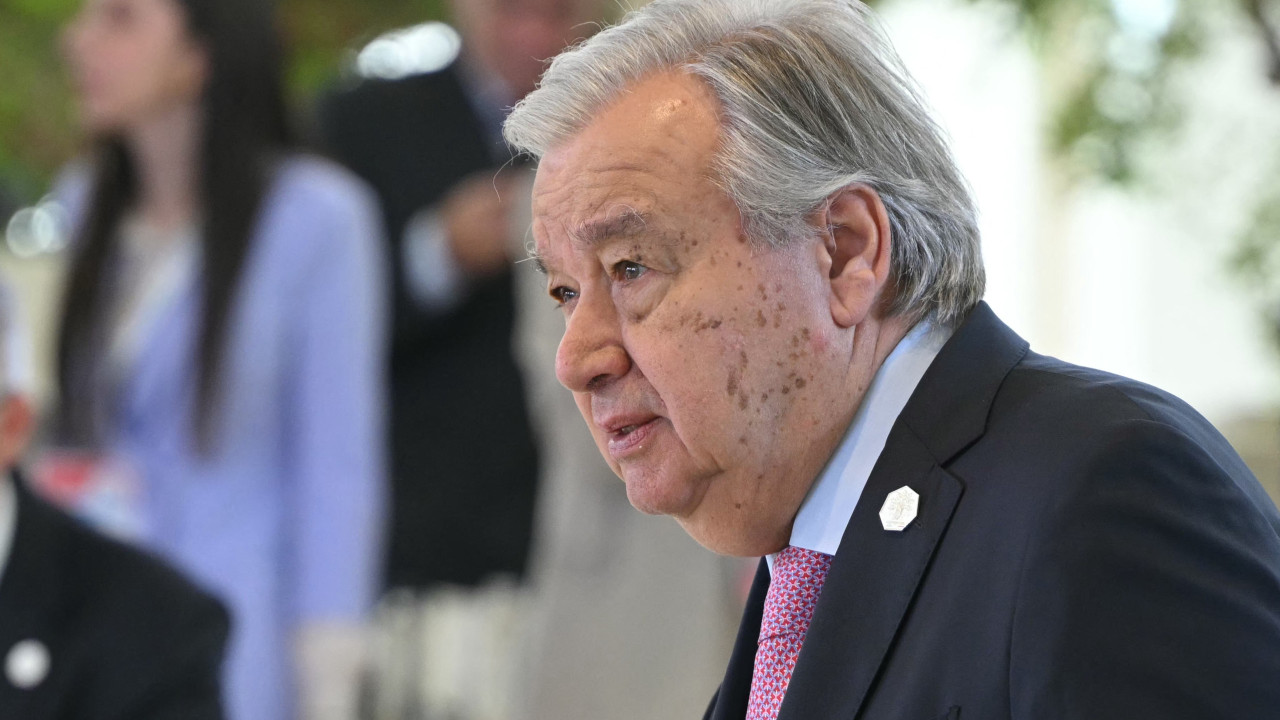
A called the Blue Line is the demarcation line established by the UN between Israel and Lebanon in June 2000.
Israel and Hezbollah have been engaged in intense cross-border crossfire since October 8, 2023, one day after the start of the war in Gaza.
Israel bombed southern Lebanon this weekend with more than 100 fighter jets to prevent an “imminent attack” by Hezbollah, which managed to fire around 300 projectiles at the Jewish state, in the biggest escalation between the two sides in almost two decades.
“These actions put both the Lebanese and Israeli populations at risk and threaten regional security and stability,” Guterres told reporters through a spokesperson, who conveyed the call for “the urgent and immediate return of the parties to the cessation of hostilities and the full implementation of Security Council resolution 1701 (2006)”.
About a month after the assassination of its top commander, Fuad Shukr, in an Israeli strike in the suburbs of Beirut, Hezbollah began retaliating, launching rockets and drones into northern Israel.
The Lebanese Shiite movement ended the operation “for today” and indicated that it was the “first phase” of the response.
In turn, the head of European diplomacy, Josep Borrell, assessed that the “situation in the Middle East has reached a critical level of danger, for the region and beyond”.
The European Union’s High Representative for Foreign Affairs and Security Policy said he supports “the call by Lebanese Prime Minister Najib Mikati for the immediate implementation of UN Security Council Resolution 1701, in addition to the much-needed ceasefire in Gaza, to avoid the risk of an all-out war”.
This UN resolution demands a complete cessation of hostilities between Israel and Hezbollah, the withdrawal of Israeli forces from Lebanon, which will be replaced by Lebanese forces and the UN peacekeeping mission in Lebanon (UNIFIL), and the disarmament of armed groups, including Hezbollah.
Meanwhile, contacts were accelerated to try to contain the situation and calls for a de-escalation of violence, particularly by UNIFIL and the UN office in the country.
The Lebanese prime minister confirmed during an emergency ministerial meeting that he is “making a series of contacts with Lebanon’s friends to put an end to the escalation”, according to a government statement.
He also reaffirmed his support for negotiations in Cairo for a ceasefire in Gaza, seen as the only way out of the violence in Lebanon and the key to avoiding the potential conflict that has loomed over the Middle East in the last month.
The ongoing war between Israel and Hamas was triggered by an unprecedented attack by the Palestinian Islamist group on Israeli soil on October 7, 2023, which caused around 1,200 deaths and more than two hundred hostages, according to Israeli authorities.
Following the Hamas attack, Israel launched a large-scale offensive in the Gaza Strip, which has already caused more than 40,000 deaths, mostly civilians, and a humanitarian disaster, destabilizing the entire Middle East region.
Read Also: Palestinian president asks Guterres to visit Gaza (in letter)

Download our free App.
Eighth consecutive year Consumer Choice for Online Press and elected product of the year 2024.
* Study by Netsonda, Nov. and Dec. 2023 productoftheyear- pt.com
Source: https://www.noticiasaominuto.com/mundo/2621015/guterres-insta-israel-e-hezbollah-a-reduzirem-escalada-de-violencia



